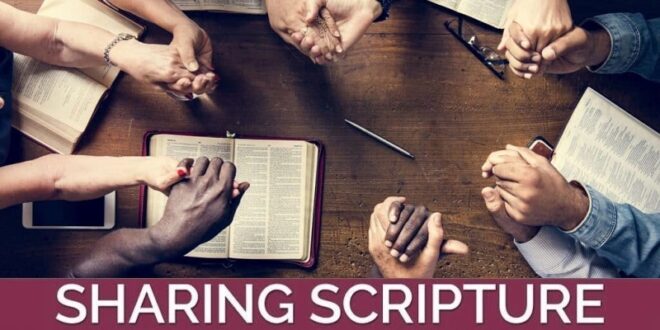Taken and Tried
When we read the account of Jesus’ trial before the Sanhedrin, the term that often comes to mind is “kangaroo court.” So, what does an Australian marsupial have to do with the judicial travesty that took place in Jerusalem around 2,000 years ago? Not much, actually.
According to Cornell University’s Law School, the term “kangaroo court” has nothing to do with kangaroos, other than they are good at jumping around. “The more popular explanation is that the term ‘kangaroo court’ came about to describe frontier judges who would ‘hop’ from one town to another, with little regard for making fair rulings,” explains its website. “Other etymologists believe that the term refers to the ad hoc and less formal courts that dealt with ‘claim jumpers’ (gold miners who were accused of prospecting in another miner’s land). These courts were set up quickly and with comparatively little oversight.”
No matter where the term comes from, the allegation is the same: that a court issued an egregious ruling, not necessarily from incompetence, but as an intentional miscarriage of justice. It can include bias against one party, collusion between a judge and a party, a hasty trial that allows a party little time to prepare, and an unreasonable interpretation of the law.
Accordingly, one of the worst charges one judge can level against another is that the offending judge presided over a kangaroo court. Even at that, it still seems too weak an indictment to label the Sanhedrin’s trial of Jesus as merely a kangaroo court. The miscarriage of justice in Caiaphas’ courtyard was absolutely criminal. An online Bible study lists several violations of Jewish laws:
- They bribed Judas to betray Jesus, violating the terms of Exodus 23:8 against bribery.
- They held the trial in the dead of night, before the morning sacrifice, on the eve of a feast day, and issued a capital sentence on the first day of a trial. This broke several rules found in the Jewish Mishnah concerning the timing of trials.
- Deuteronomy 17:9-10 instructed that trials were to be held in public places, designated by the Lord. The Mishnah directed the Sanhedrin to hold trials in a public building on the Temple grounds called “The Chamber of Hewn Stones.” They tried Jesus instead at Caiaphas’ house, under a cloak of secrecy.
- The trial included false, trumped-up charges, and conflicting evidence. Exodus 23:7 warns against bringing false charges and convicting the innocent. And yet Jesus, the guileless Lamb of God, fulfilled the prophecy of Isaiah 53:4-7. He spoke not a word in His defense, so that He was taken, tried, and crucified for our transgressions.
Why was the Sanhedrin willing to violate so many Jewish laws to bring down Jesus, Whom they falsely accused of doing the same? What can we take from the fraudulent trial and apply to our own spiritual walk?
For Reflection
Connecting: Have you ever been subjected to a smear campaign? Without sharing any uncomfortable details, explain to your study group how you felt at the time. Angry? Helpless? Resigned?
Sharing: What if the Jews, instead of rejecting Jesus and killing Him, had understood Jesus’ role as the sacrificial Lamb of God and accepted Him as the true Messiah? How would the plan of salvation still be fulfilled?
- They would have welcomed Jesus at the triumphal entry, held a coronation for Him as King of the Jews, and gone out to evangelize the world
- Since the plan of salvation still required the blood of a sacrifice, the Romans would have crucified Him as an insurrectionist (fulfilling the prophecy that the Son of Man must be lifted up—John 3:14-15)
- God the Father would have come down from heaven, laid Jesus on the altar in the temple, and killed Him just as Abraham intended to do with Isaac
- Jesus would have gone into the temple and shed His blood Himself, providing the offering for the eternal sacrifice
- However the scenario above played out, Jesus would still have laid in the tomb and risen on the third day to reign over heaven and earth
- Other:
Applying: You may be familiar with the work of organizations such as the American Civil Liberties Union, Amnesty International, and the Southern Poverty Law Center (as well as our own Religious Liberty department) on behalf of those who need help standing up against injustice. Are you aware of local groups who work to ensure that justice is rightly served? Using your smartphones or tablets, do an online search for “groups who stand against injustice in (insert your local state or city).” Do you ever foresee the need to refer someone to one of these organizations?
Valuing: Newsweek uses a “Fairness Meter” to allow readers to give input on how fair and accurate they find their reporting. How active is your internal “fairness meter”? Do your red flags go up when you see injustice in the world?
~ Chuck Burkeen
The Center for Creative Ministry is fully recognized by the North American Division (NAD) of the Seventh-day Adventist Church; it is also a 501c3 nonprofit organization which makes donations tax deductible in the U.S.
 Center for Creative Ministry A research organization and research center for Seventh-day Adventist pastors and their congregations
Center for Creative Ministry A research organization and research center for Seventh-day Adventist pastors and their congregations

